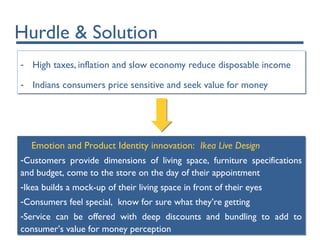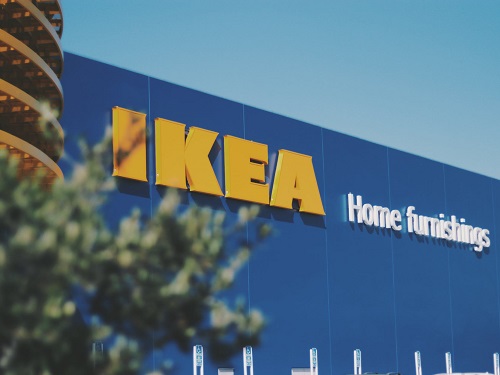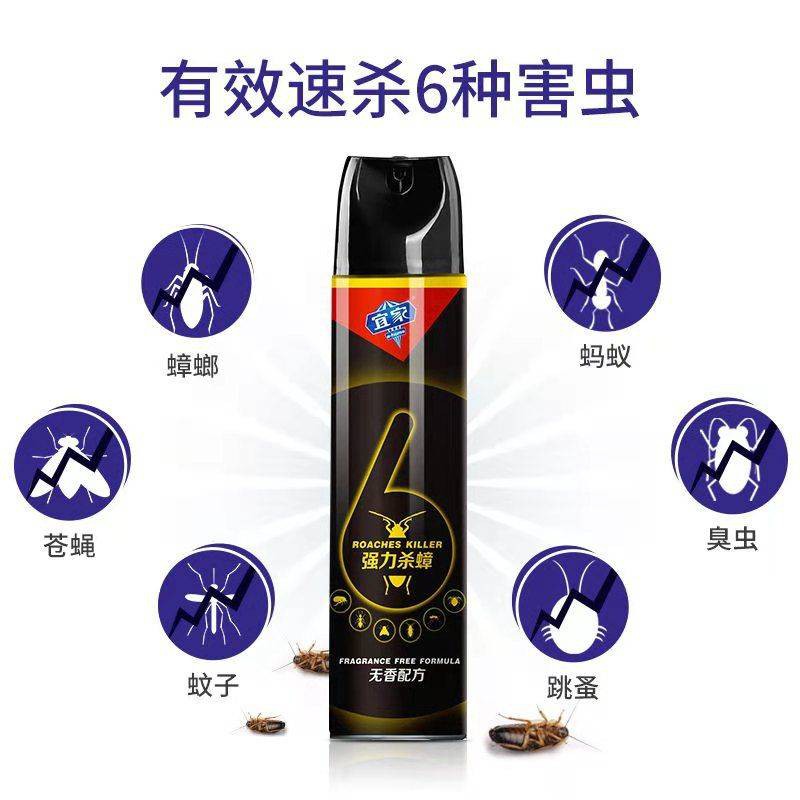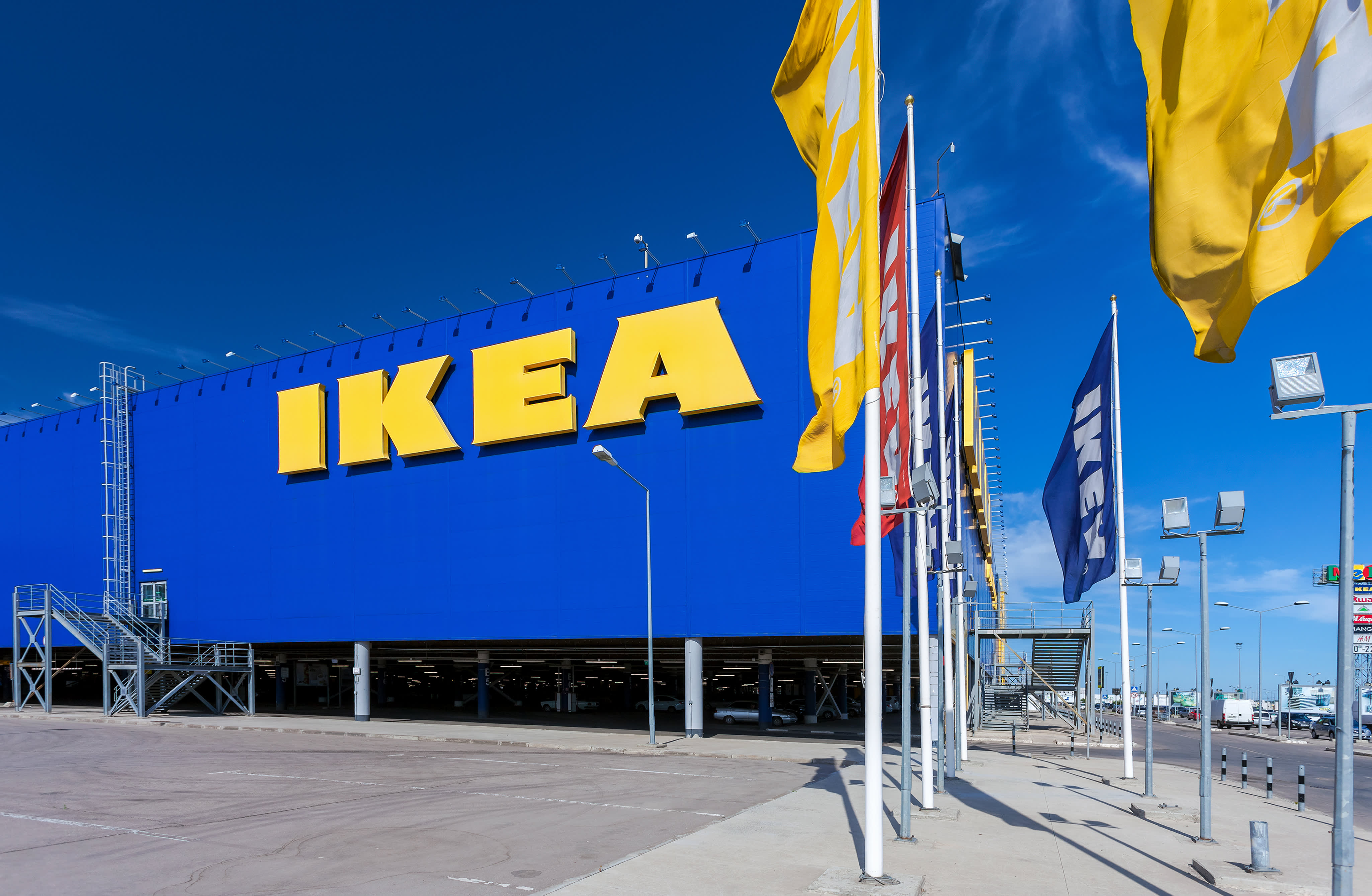Ikea is a well-known Swedish multinational company that designs and sells ready-to-assemble furniture, kitchen appliances, and home accessories. Founded in 1943 by Ingvar Kamprad, Ikea has grown to become one of the world's largest furniture retailers, with over 430 stores in 52 countries. Despite its success, Ikea faces various external factors that can impact its operations and performance, which can be analyzed through the use of the PEST analysis.
PEST stands for Political, Economic, Social, and Technological, and it is a tool used to assess the impact of these external factors on a business. Here is a PEST analysis of Ikea:
Political:
- Ikea operates in a large number of countries, and therefore it is exposed to the political risks and regulations of these countries. For example, Ikea may face trade tariffs or other barriers that can increase the cost of its products or limit its access to certain markets.
- The company also has to comply with labor laws and regulations in the countries where it operates, which can impact its costs and operations.
- Ikea may also face risks related to political instability or conflict in certain countries, which can affect its operations and supply chain.
Economic:
- The economic conditions of the countries where Ikea operates can impact the demand for its products and the company's financial performance. For example, a recession or a slowdown in economic growth can lead to a decline in demand for furniture and home accessories.
- The cost of raw materials, labor, and transportation can also impact Ikea's profitability.
- The exchange rate fluctuations can also affect the company's financial performance, as it operates in multiple currencies.
Social:
- The changing social trends and preferences of consumers can impact the demand for Ikea's products. For example, the trend towards minimalism or sustainability may lead to a shift in consumer preferences towards smaller or more eco-friendly products.
- The company's reputation and brand image can also be impacted by social factors, such as negative publicity or criticism from consumers or advocacy groups.
Technological:
- Ikea faces competition from other furniture retailers and online marketplaces, and therefore it has to constantly innovate and improve its products and operations to stay ahead.
- The company has embraced technology in various aspects of its operations, including online sales, digital marketing, and automation of its manufacturing processes.
- Ikea also has to keep up with the changing technological trends and adapt to new technologies, such as the increasing use of mobile devices and the rise of e-commerce.
In conclusion, Ikea faces various external factors that can impact its operations and performance, and it has to constantly adapt and respond to these factors through its strategies and operations. By conducting a PEST analysis, the company can identify and assess the impact of these external factors on its business, and develop strategies to mitigate their risks and seize opportunities.
PESTLE Analysis of IKEA

IKEA PEST GROUP PEST ANALYSIS BUS 4407 STRATEGIC MANAGEMENT STRATEGIC FORMULATION, THE PEST AND SUCCESS FACTORS Through this unit, the very key point is the financial situation for the company. . For instance, the competition for furniture products is growing. . This may include having home assembly services at an affordable price point. A creation of competitive advantage by using differentiation of company´ s strategy actions: The case study of IKEA Sweden with experiences on Chinese and French markets.
IKEA PESTLE Analysis

With continuous focus on innovations in architecture and interior design IKEA group has also established foundations of design and research to come up with better and better innovations in various areas, including interior design. However, the company was criticised for its poor product durability and poor design aesthetic. . Emerging economies set for moderate to strong economic growth Social Technological 1. These factors do not result within the business, but they are outcomes of the environment that the company is located. It is necessary for the company to source 30% of its inventory from local sources in India. But the good news is coming from the developing nations where it is expanding its business rapidly and started seeing great sales.
IKEA Budaörs

We invest deep in order to bring you insightful research which can add tangible value to your business or academic goals, at such affordable pricing. In accordance with its reports, the company uses only safe and clear raw materials to create its products IKEA facts and figures 2018. . This seems to be a byproduct of offering inexpensive products. .
Pet products

Finally, for Ashley Furniture Industries, the company is strong in branding and quality, but needs to improve its affordability, digital marketing and e-commerce. That is why the given factor should be considered beneficial for the future success of the brand. . Last but not least we will end it with Premium Marketing PEST analysis Singapore. It happened due to the weakening of the pound against the euro and dollar.
Pestel Analysis of the IKEA Corporation

. This can pressurise organisation to move new location just to find out technological solution Craig, 2005 Technological: Technological developments in recent years are significance. . Briskin, 2016 However, on the bright side, growing global interest in Scandinavian design and sustainability within the larger society has allowed IKEA to tap on these trends to drive growth. We invest deep in order to bring you insightful research which can add tangible value to your business or academic goals, at such affordable pricing.
Detailed PESTEL Analysis of IKEA

Also, you can find substantial 5. In some country political is very stable and providing good infrastructure for the business. . As of October 2010, IKEA has 313 stores in 38 countries most of them in North America, Europe, Asia and Australia. . Learn More Environmental IKEA also tries to achieve high sustainability levels. Strengths and Weakness are internal factors of the business.







